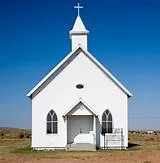
HARDSHIP: CHRISTIANS NO LONGER ATTEND CHURCH, GIVE OFFERINGS – ANGLICAN ARCHBISHOP LAMENTS
THE Archbishop of Ibadan Province, Church of Nigeria Anglican Communion, Dr. Williams Aladekugbe, has lamented that the economic crunch in the country has prevented Christians from attending services and giving offerings in churches.
He said this while delivering the 1st Distinguished Alumni Lecture of the Department of Religious Studies, Faculty of Arts, University of Ibadan, in Ibadan, at the weekend.
He noted that the hardship had compelled a cleric to call President Bola Tinubu and ask him to save people from the economic crises.
Speaking on the topic, entitled “The faith once delivered to the saints in the context of contemporary socio-economic challenges”, held at the Otunba Subomi Balogun Conference centre, UI, he said:
“The present economic hardship resulting from the removal of fuel subsidy is also having its effects on the Christians in Nigeria, as many families could no longer attend church services, some of those who manage to attend church services, have no money for offerings and other contributions in the Church.
“It must be noted that Christians nationwide, along with the adherents of other faiths, are under economic pressure. This situation has forced a cleric to call on President Tinubu during the burial of Rotimi Akeredolu, the late governor of Ondo State by saying ‘You said it’s your turn, now save Nigerians from hunger’.”
Aladekugbe, who is also the Bishop of Ibadan North (Anglican) Diocese, said: “In Nigeria, in the past, people had demonstrated against unfriendly policy bringing bad economy, it is not different today as groups of people have demonstrated from time to time to show their annoyance at the present economic policy of the government.
“Till now, people are taking to the streets to demonstrate perhaps the government will change her policy. This time around, the series of demonstrations have failed as high costs of all things in the market persist. Nigerians call on President Tinubu to end hunger and hardship.
“Groups, associations, clubs, traditional rulers, clerics and the general populace have been groaning under the economic policy of the present regime. There is no point hiding the fact that Nigerians are frustrated, hungry and angry.
“The hardship, insecurity, poverty and unemployment in the country are such that no one can pacify anybody. The socio-economic reforms of the Federal Government have inflicted unparalleled hardship on Nigerians. The soaring cost of food has escalated the suffering of Nigerians and crime has greatly increased.
“It has been observed that the present situation has become unbearable for Nigerians. People in different locations of the country are lamenting and discussing the future of Nigeria’s political structure as a result of present economic woes on social media, in the streets, and in club houses, voices are being heard that the faith of a common man has been affected. Some people are saying ‘God, where are you?’.
“The clergy and the ministers of God have more to do at a time like this to save people from depression, loss of hope and probably from suicide. Lectures, sermons and teachings should be intensified to keep the faith of the Christians alive so that they can triumph over this period which is believed would be for a short period.”
He explained that people exhibit various forms of fear based on the current situation but warned that faith should be cultivated as a step to attracting God’s divine intervention.
The cleric said: “In the Nigeria of today, the people’s religious lives are characterised with fear of the enemies, fear of tomorrow, fear of the unknown, fear of poverty and fear of what has not happened but been imagined, all these seem unsolvable to the people because of the absence of faith.
“Looking at the myriad of problems confronting Christians today, these problems cannot be solved through fear.
“In response to the fear in the society, we emphasized faith as a major solution to human problems. God should remain a reference point to everyone who desires a practical solution to the problems of life.”
 Premium News
Premium News